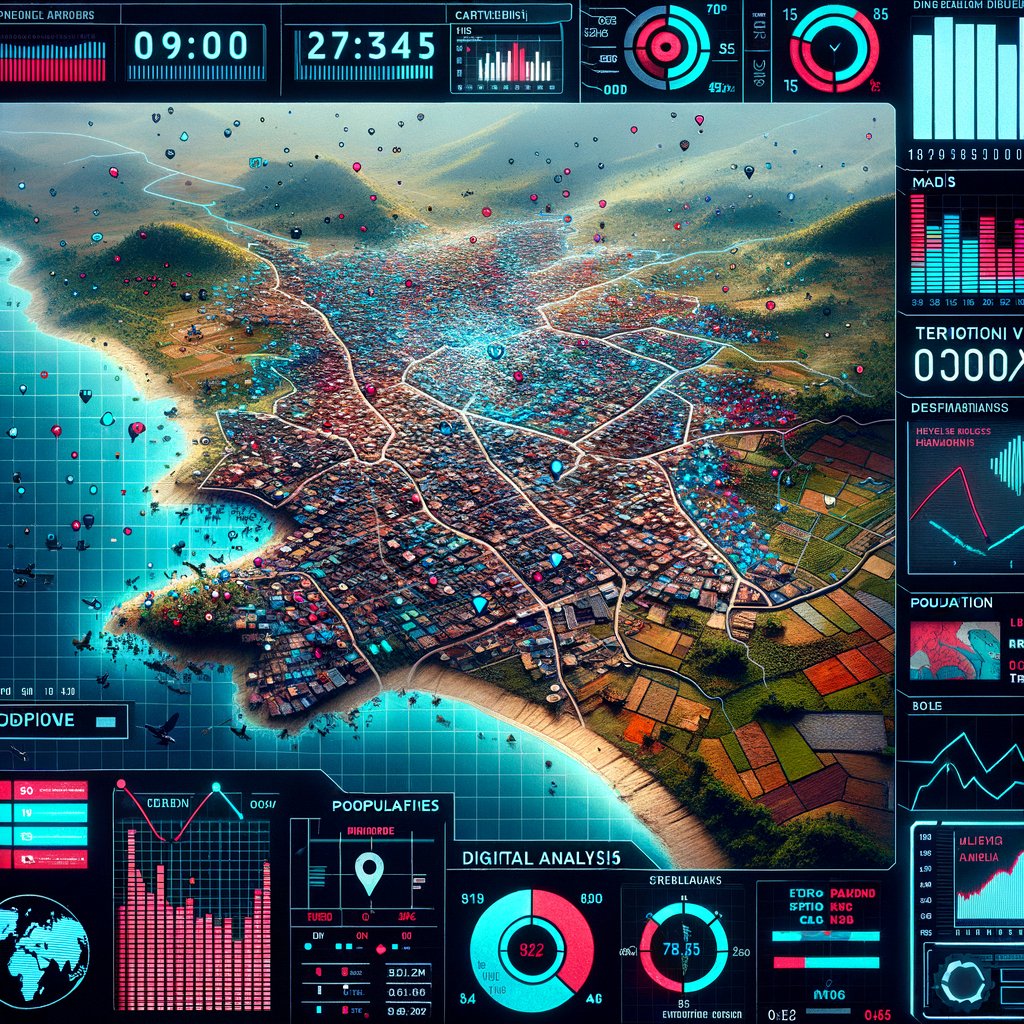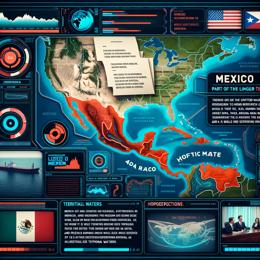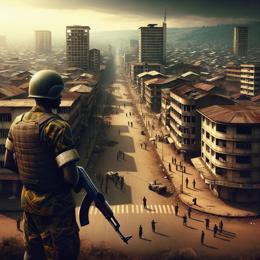Image created by AI
M23 Rebels Seize Masisi in DR Congo Amidst Escalating Conflict
The town of Masisi in eastern Democratic Republic of the Congo has fallen into the hands of the M23 rebel group, a development that underscores the escalating conflict in the region. This event marks the second town that M23 has captured in North Kivu province within just two days, signaling a significant advance in their control over the area.
M23, a rebel group known to be backed by Rwanda, has seen a resurgence of activity since 2021, during which they have taken over extensive territories in eastern DR Congo. The capture of Masisi, a town approximately 80 kilometers north of the provincial capital, Goma, has heightened fears among the local population of about 40,000 residents. The groups' expansion has led to the displacement of hundreds of thousands of people, contributing to a dire humanitarian crisis in the region.
The seizure of Masisi comes amidst failed diplomatic efforts to quell the growing unrest. Angola has spearheaded negotiation attempts involving key regional leaders, including Congolese President Félix Tshisekedi and Rwandan President Paul Kagame. However, these discussions broke down last month, culminating in a stalemate that has left the local populations vulnerable and the political scenario dangerously unpredictable.
In 2012, M23 had briefly taken control of Goma, North Kivu's capital, which is pivotal to the region both economically and strategically. The reemergence of M23 and their continuing territorial advancements have not only stoked fears of a repeat of the past scenarios but also drawn international attention to the fragile security situation in eastern Congo.
The Congolese authorities have yet to make a formal statement regarding the recent developments in Masisi, reflecting either a strategic silence or a lack of preparedness to deal with the swiftly changing dynamics on the ground. The international community watches closely, as the instability in Congo has broader implications for regional security and humanitarian conditions.
As the M23 continues its aggressive campaign in North Kivu, the future of Masisi and other similar towns hangs in balance, with the potential for further escalation of conflict and displacement of more civilians. The urgency for a renewed and effective dialogue among all stakeholders is more pressing than ever to restore peace and stability in the region.










